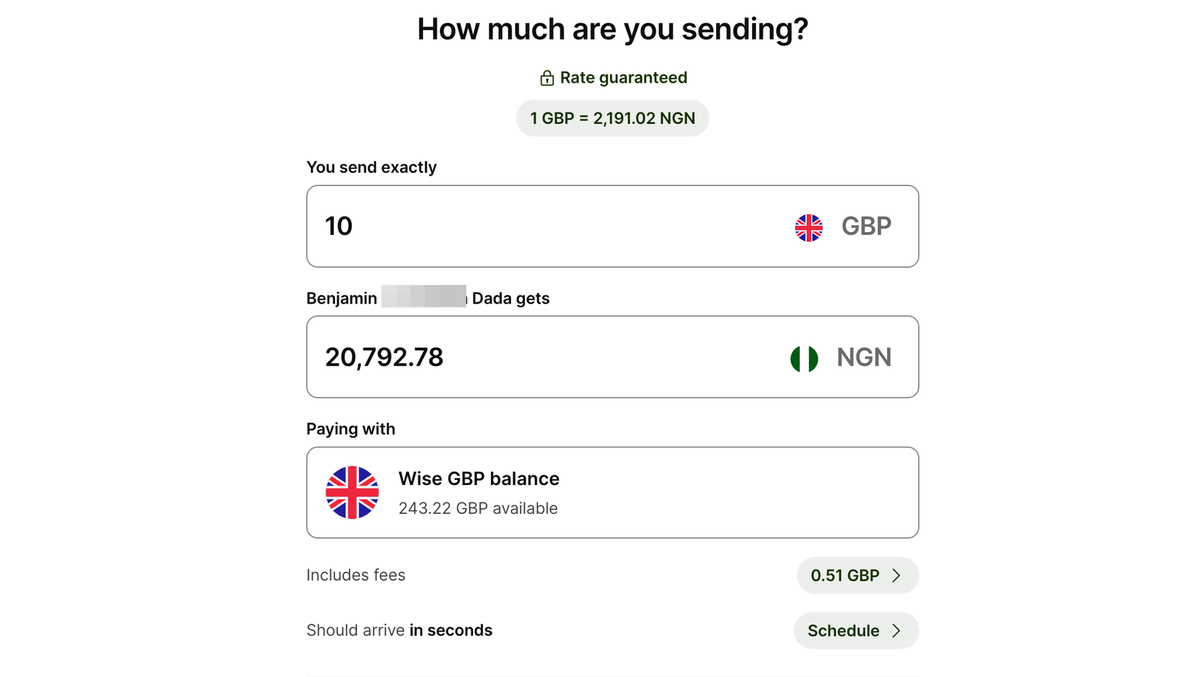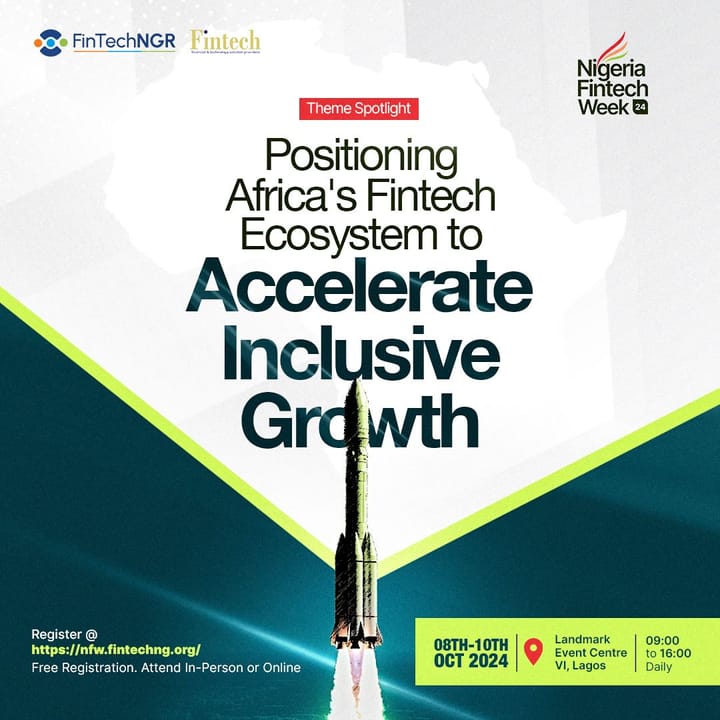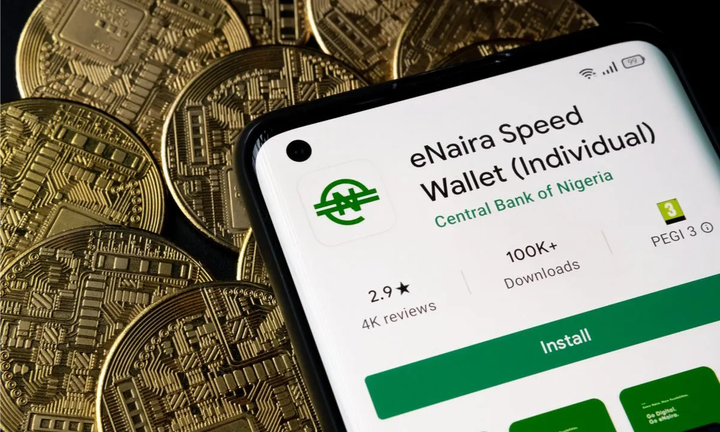Wise enables local payouts to Nigeria for the nth time
Wise (formerly TransferWise) is restarting naira transfers to Nigeria for the third time after a two year pause. This time it will have to compete with other local and well-funded players like LemFi and Flutterwave $end.

Wise (formerly TransferWise), a UK-headquartered fintech popular for its low-cost money transfer has re-enabled payouts to Nigeria in local currency, Naira.
The London-listed fintech giant now allows its UK customers to send naira to Nigerian bank accounts. Terminating remittances to Nigeria in naira is in line with the most recent IMTO guideline from the CBN. In the January 2024 guideline, the Central Bank of Nigeria (CBN) reversed a previous stance to inflow remittances in US dollars only. Instead, mandated that all funds to beneficiaries in Nigeria be paid out in naira to bank accounts or disbursed as cash (if below $200 equivalent).
Wise's unstable relationship with Nigeria
- Started in Feb 2015, stopped in 2016
- Started in October 2017, stopped in 2020
- Stopped in 2022, starting in 2024
This is not the first time that the 14-year-old fintech has enabled sending money to Nigeria. Its brand promise of mid-market rate, regulatory policies and payout provider reliability issues have led to its instability in sending funds to Nigeria.
Following its $58M Series C in January 2015, TransferWise (now Wise) sought global expansion.
In February 2015, it came good on that plan enabling "a piece of every continent" to receive money from their send markets.
The founders, Taavet Hinrikus and Kristo Käärmann, wrote "It’s official. You can now use Wise to send US Dollars to any other currency on our platform. And even better, that list now includes Brazil, the Philippines, Canada, Malaysia and Nigeria." (underline mine)
However, sending money to Nigeria didn't last long as by May 2016 they had stopped because they "could not offer a true mid-market rate and a transparent fee", according to an October 2017 report from Nairametrics, a local media publication. "After a 17- month break, money transfer company, TransferWise has commenced operations in Nigeria."
It is no news that Nigeria has long been battling with the prevalence of two types of foreign exchange markets—an official market and a parallel market. In the past, the USDNGN exchange rate could vary by as much as ₦400 in both markets. Thus, many originators of dollars preferred to sell on the parallel market. So, TransferWise could have faced a problem where they were losing customers because no one wanted to trade their USD for the official market rate that TransferWise was quoting.

Next, was the challenge of regulation.
At the time Wise started around 2011, there was no International Money Transfer Operator (IMTO) Regulation in Nigeria, that came in 2014. Yet, the country's woes with trade deficit has led it to make frequent changes to how remittances should be received in Nigeria. The Central Bank of Nigeria has oscillated between allowing both USD and NGN, USD or NGN only to be terminated in the country.
Towards the end of 2020, the CBN's stance was to directly receive the sent dollars to Nigeria for residents to pick up at bank branches or hold in their domiciliary accounts. They went hard on it and within a space of 53 days, they sent three circulars (1, 2, 3) out to all the participating parties in international remittance. The parties are the IMTOs licensed in Nigeria but with relationships abroad to originate funds, deposit money banks (authorised dealers in FX), and local payment service providers (PSP) for distributing to the last-mile in Nigeria.
Mandating payout of dollars in Nigeria means an international SWIFT transfer to the domiciliary account of a Nigerian bank. This went against TransferWise's main ethos of low-cost fee, and fast settlement of remittance transactions. "The idea is very simple. Instead of making one international transfer, two local transfers are made," Nairametrics wrote about TransferWise in 2017. So, while TransferWise was already setup with local bank accounts holding naira float to payout naira in Nigeria, asking them to payout in dollar was going to disrupt their operations.
In the CBN's 2020 desperation, it declared Azimo and TransferWise as unregistered IMTOs on December 16, 2020.
Azimo, Transfer Wise Not Registered IMTOs pic.twitter.com/K6H6ZkVeno
— Central Bank of Nigeria (@cenbank) December 16, 2020
The following day (December 17, 2020), Reuters announced that TransferWise will no longer send money to Nigeria. "Transferwise said it could no longer offer money transfer...with its current set-up but was working to reopen transfers".
Side note:
- One does not have to be an IMTO themself to send money to Nigeria, you can partner with one. If you partner, you should obtain a letter of no objection from the CBN as foolproof. So, it's possible that Wise was already partnered with an IMTO for its business of remittance to Nigeria.
- It's unclear which Azimo the CBN was referring to because as of the year before, an Azimo was listed as an IMTO and the year after (2021), said Azimo was still listed (meaning its licence was not revoked).

It's hazy if TransferWise stopped remittance to Nigeria in December 2020 or when they restarted. But by October 2022, they had paused the service to Nigeria again. This time they were pausing because of tech provider (payout partner) issues, amongst other things.
According to BusinessDay, a Wise (changed name from TransferWise in 2021) spokesperson said "Unfortunately, we’re no longer able to support USD transfers to Nigeria. We’re doing this because we’re currently not able to offer our customers the service they’d expect from us. We’re very sorry about the inconvenience caused and are working hard to bring back USD transfers to Nigeria."
The spokesperson's comment is inline with an email sent to users and cited by many other local news platforms. The email states that Wise will be indefinitely suspending all USD transfers to Nigeria because it's not as fast or reliable as they would like.
It's unclear what they meant by USD transfers. Did it mean USD as the originating currency (e.g. from users in the diaspora) or USD as the settlement currency in Nigeria (i.e. what the beneficiary received)? Whatever the case, in July 2023, the CBN allowed payouts in naira or dollars (and eNaira).
Ten years after the first IMTO guideline, the CBN put forward revised guidelines on January 31, 2024. This time around, they mandated all payouts to be in naira only. "All inbound money transfers to Nigeria shall be paid to beneficiaries in Naira".
Nine months after, Wise has reopened the conversation of sending money to Nigeria for the nth time. As of press time, users cannot convert USD to NGN. However, users who onboarded from the UK or the EU can convert other currencies to naira. For instance, EUR to NGN is possible if you are Wise UK user.
Wise is licensed as an EMI in the UK under Wise Payments Limited and in the EU via Wise Europe SA. Almost a decade after their first transfer to Nigeria, what will it take for them to get their own IMTO licence in Nigeria? Perhaps, more stable regulation and FX regime, high customer demand and revenue potential. Essentially, not getting their own IMTO licence (after securing over 60+ licences, elsewhere in the world) could speak to the "non-committal" nature of their relationship to Nigeria. So, consumers will take a measured approach in dealing with them.
The company's Nigeria corridor restart is coming at a time when there has been an influx of newer well-funded players like LemFi, Nala and $end (by Flutterwave—which is an IMTO, and a PSP).
Congratulations to customers as competition continues to heat up in the remittance space.
19:12 (GMT+1), September 15, 2024: Update to indicate that users with profile addresses in the UK or EU are able to convert to naira already, as opposed to the coming soon that was previously cited.






